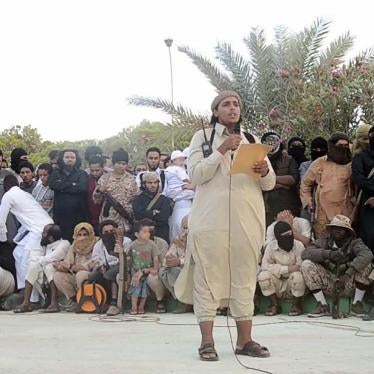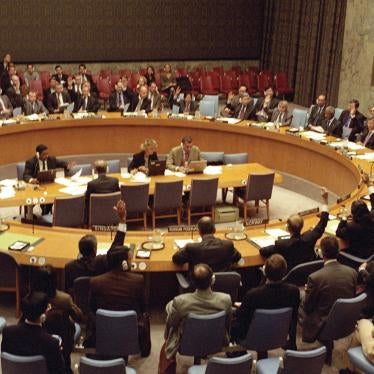The renowned Syrian artist Youssef Abdelke was arrested on the evening of July 18, at a checkpoint outside the coastal city of Tartous. He was driving home with two friends when agents of the Syrian Political Security forces stopped the car at a checkpoint and took all three men away. Abdelke was released over a month later. His family had not received any news about him during his detention.
Of the many horrors that Syrians have suffered since the uprising began in March 2011, detention is among the most terrifying. Syrian security forces have arrested thousands of people at checkpoints or during raids on their houses. Various branches of the state security apparatus interrogate them, and often hold them for months without charge, torturing and mistreating them.
They are completely shut off from the world, unable to communicate with their families or a lawyer, sometimes not even sure of where they are.
Some are taken before civilian courts, others face trial before military tribunals. The government accuses many of supporting terrorism, and many die under torture. Some are held in central prisons in big cities, but others are in underground detention centers, inside army barracks, or in places controlled by Syrian security forces.
Networks of detention places seem to have sprung up across the country like a spider web. You sometimes wonder which gate in which street in any given town could lead to a dungeon where innocent aid workers, journalists, and lawyers are hanging upside down from the ceiling, receiving electric shocks, or being whipped while immobilized, squeezed in a tire.
This is no regular detention, but rather a nightmarish black hole, where detainees find themselves left to rot in underground cells, and traumatized about what might happen to them or to their loved ones.
These practices, though banned by international law, are not new: For years, Syria has arbitrarily detained people on the basis of their political or religious affiliations as a tool to deter political activity. Yet the government has detained many more people since the uprising started in March 2011.
Those who are released carry scars on their bodies and on their souls. Many still languish in detention.
And even though some are charged and go before a judge, the legal procedures don’t meet fair trial standards. Courts generally rely on confessions extracted under torture, appeals processes remain inadequate, and detainees often have no access to an attorney. Some find themselves judged in the special Counterterrorism Court, created to prosecute cases under a July 2012 law that has been used to convict peaceful activists on charges of aiding terrorists. The law covers acts such as distributing humanitarian aid, participating in protests, and documenting human rights abuses.
“My heart is burnt,” many mothers of the missing told us. This expression in Syrian dialect suggests the devastation a mother can feel when her child is missing.
It sometimes only takes a few words from someone who was held with the prisoner to ignite a wife’s hope that her husband is alive. Families cling to memories of happier times, and dream of being reunited with their relatives who have fallen into the black hole of Syrian state security.
The Syrian government should stop its practices of torture and arbitrary detention, and people who are lawfully arrested by the Syrian authorities should be tried before courts where fair trial safeguards are assured, then convicted or released.
Armed opposition groups, mainly in opposition-held areas in northern Syria, have also arbitrarily detained journalists, and in some cases, humanitarian assistance providers and activists who criticize the groups. These groups should also stop frivolously detaining people, provide information about anyone in their custody, and treat all detainees in conformity with human rights obligations.
As discussions about future negotiations between the opposition and the Syrian government continue, all parties should remember the people who are arbitrarily detained. Allowing families, lawyers, and an impartial international organization access to the detainees is not a luxury: It is a right enshrined in international law. Releasing detainees should be a priority in the negotiations.
Tamara Alrifai is the Middle East and North Africa advocacy director at Human Rights Watch.







